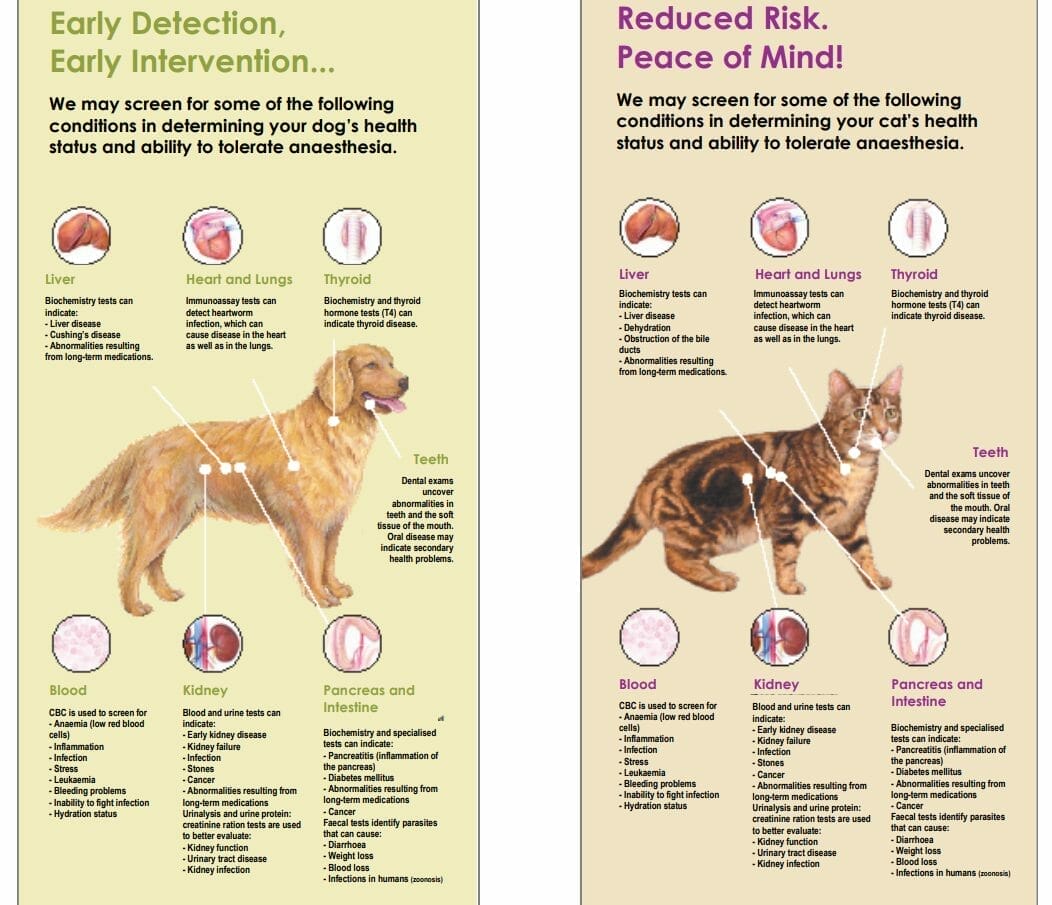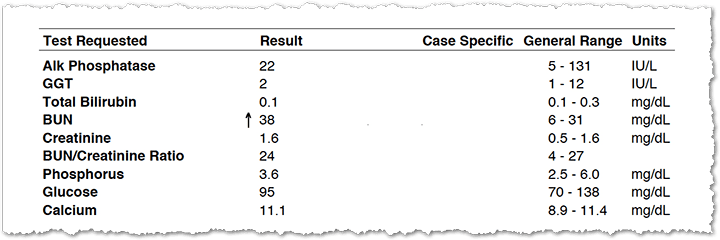You’ve always wondered about the timeframe for dog blood work. Well, wonder no more! “How Long Does Dog Blood Work Take” is here to provide you with all the details. This informative product will answer your burning questions and give you a clear understanding of how long it takes for dog blood work to be completed. Say goodbye to uncertainty and hello to peace of mind with this essential resource.

Understanding Dog Blood Work
The basics of dog blood work
Dog blood work, also known as a blood test or a blood panel, is a common diagnostic tool used by veterinarians to assess a dog’s overall health and detect any underlying health conditions that may not be immediately visible. Blood work involves drawing a small sample of your dog’s blood and sending it to a laboratory for analysis. It provides valuable information about your dog’s red and white blood cell counts, organ function, and overall wellness.
Why vets recommend blood tests for dogs
Veterinarians recommend blood tests for dogs as a routine part of their preventive care. These tests help identify any potential health problems before they progress into more serious conditions. Early detection allows for prompt treatment, which can lead to better outcomes and potentially save your dog’s life. Regular blood work is especially important for aging dogs and those with certain breeds or pre-existing medical conditions.
Types of dog blood tests
There are several different types of blood tests that can be performed on dogs, depending on their specific needs or suspected health issues. Some common types of blood tests for dogs include:
- Complete Blood Count (CBC): This test provides information about your dog’s red and white blood cell counts, as well as platelet levels. It helps diagnose conditions such as anemia or infections.
- Blood Chemistry Panel: This test evaluates the functioning of various organs, such as the liver and kidneys, by measuring different components in the blood, including electrolytes, proteins, and enzymes. It helps detect organ dysfunction or evaluate the effectiveness of certain medications.
- Thyroid hormone testing: This test measures the levels of thyroid hormones in your dog’s blood, which helps diagnose thyroid-related disorders such as hypothyroidism or hyperthyroidism.
- Heartworm testing: This test checks for the presence of heartworms, a potentially life-threatening parasite transmitted by mosquitoes. Early detection is crucial for successful treatment.
Preparation for Blood Work
Pre-blood work checkups
Before scheduling your dog for blood work, it is advisable to arrange a pre-blood work checkup with your veterinarian. During this checkup, your vet will assess your dog’s overall health and discuss any specific concerns you may have. They will also provide instructions regarding fasting, if necessary, and answer any questions you may have about the procedure.
Usual procedural expectations
When you bring your dog in for the blood work, a veterinary technician will collect the blood sample from a vein, typically from a leg or by using a jugular vein. The procedure usually takes just a few minutes and is relatively painless. Most dogs tolerate it well, although some may experience mild discomfort.
Necessity of a fasting dog before blood work
In some cases, your vet may request that your dog fast overnight before the blood work. Fasting is typically required for tests that evaluate the levels of certain nutrients or hormones in the blood. It ensures accurate results by eliminating any interference from recent meals that could affect the test outcomes. Make sure to follow your vet’s fasting instructions carefully to ensure the reliability of the blood work results.
The Process of Drawing Blood
Where dogs generally get their blood drawn from
The most common sites for drawing blood from dogs are the cephalic vein (located on the front leg) and the jugular vein (located in the neck). The cephalic vein is often preferred for routine blood draws as it is easily accessible and less prone to complications. The jugular vein, on the other hand, is used when larger volumes of blood need to be obtained, or when it is necessary to draw blood more easily from a specific location.
How veterinarians perform the blood draw
Drawing blood from a dog requires skill and precision. A veterinary technician or veterinarian will typically use a clean needle and syringe to perform the procedure. They will sanitize the area and gently insert the needle into the chosen vein, carefully withdrawing the desired amount of blood. Once the sample is collected, it is generally transferred to appropriate tubes for testing and sent to a laboratory for analysis.
Explicit details that occur during a blood draw
During the blood draw, it is normal for your dog to experience slight discomfort or mild pain at the site of the needle insertion. However, this discomfort is usually temporary and subsides quickly. Some dogs may exhibit slight hesitation or anxiety during the procedure due to the unfamiliar setting and the presence of medical equipment. It is essential to remain calm and reassuring to alleviate any stress your dog may feel.
Common Blood Tests for Dogs
Complete Blood Count (CBC)
The Complete Blood Count (CBC) is one of the most common blood tests performed on dogs. It provides valuable information about your dog’s red blood cells, white blood cells, and platelets. The CBC helps assess your dog’s overall health and can detect conditions such as anemia, infection, or a compromised immune system. It also helps monitor the response to certain medications or treatments.
Blood Chemistry Panel
The Blood Chemistry Panel is a comprehensive test that evaluates the functioning of different organs in your dog’s body. It measures various components in the blood, including electrolytes, proteins, liver enzymes, kidney function markers, and glucose levels. This test helps identify potential organ dysfunction or monitor the progression of certain diseases, such as liver or kidney disease.
Thyroid hormone testing
Thyroid hormone testing is often done to evaluate the thyroid function in dogs. The thyroid gland plays a crucial role in regulating metabolism, and abnormalities in thyroid hormone levels can lead to various health issues. This blood test checks the levels of thyroid hormones, such as T3 and T4, and helps diagnose conditions like hypothyroidism or hyperthyroidism.
Heartworm testing
Heartworm testing is an important blood test recommended for all dogs, particularly those living in areas where heartworm disease is prevalent. It checks for the presence of heartworm antigens in the blood, indicating the presence of heartworm infection. Early detection allows for prompt treatment, preventing further complications and potentially saving your dog’s life.

Time Factors Affecting Dog Blood Work
Average duration for a dog blood work
The duration for dog blood work can vary depending on various factors, such as the specific tests being performed, the laboratory’s workload, and the urgency of the case. In general, most routine blood work results are available within 24 to 48 hours. However, some specialized tests or complex cases may require more time for analysis, and results may take several days or longer.
Factors that could delay results
Several factors can contribute to delays in blood work results. Laboratory backlogs, technical difficulties during testing, or the need for additional specialized tests can prolong the time it takes to receive the results. It is important to discuss the potential time frame with your veterinarian, especially if you are concerned or if your dog’s condition requires immediate attention.
Emergency situations and expedited tests
In emergency situations where immediate results are necessary, some veterinary clinics may offer expedited blood tests. These tests are prioritized, and results can be obtained within a shorter timeframe, often within a few hours. If you suspect an emergency or require urgent results, communicate your concerns to your veterinarian, who can advise you on the best course of action.
Interpreting the Results
How vets analyze the blood work
Interpreting blood work requires the expertise of a veterinarian who can analyze the results and compare them to normal reference ranges. Vets consider various factors, such as breed, age, and medical history, when assessing the significance of abnormalities or fluctuations in test values. They also take into account the specific tests performed and their relevance to the suspected or known health conditions.
Common terminologies found in the blood work result
Blood work reports may contain technical terminologies that can be confusing to pet owners. Some common terminologies you may encounter include red blood cell count (RBC), white blood cell count (WBC), hemoglobin, hematocrit, albumin, bilirubin, blood urea nitrogen (BUN), creatinine, and glucose levels. Your veterinarian will explain the meanings of these terms and the implications they have on your dog’s health.
Understanding abnormalities and normal ranges
Blood work results can show variations from the normal reference ranges, indicating potential health issues. It is essential to discuss these abnormalities with your veterinarian to understand their significance. Some variations may be temporary or insignificant, while others may require further investigation or treatment. Your vet will guide you in understanding what is considered normal for your dog’s specific situation and recommend appropriate steps if intervention is necessary.

Potential Risks and Complications
Common risks associated with dog blood tests
Dog blood tests are generally safe, but there are some inherent risks associated with the procedure. The most common risks include minor bleeding or bruising at the needle insertion site, infection, or adverse reactions to anesthesia if required. These risks are relatively rare and can be minimized by choosing a qualified veterinary professional and following the recommended precautions.
Possible complications post-blood work
Complications after blood work are rare but can occur. Some dogs may experience mild lethargy or soreness at the needle insertion site. In extremely rare cases, a more severe reaction, such as anaphylaxis, may occur. It is essential to monitor your dog after the blood work and contact your veterinarian if you notice any unusual symptoms or if your dog’s behavior significantly changes.
Managing your dog’s stress and fear
Visiting the vet and undergoing blood work can be stressful for dogs. To help alleviate anxiety, it’s important to create a positive environment and build trust between your dog and the veterinary team. Gradual desensitization to veterinary procedures, gentle handling, and positive reinforcement can help minimize stress. Some clinics also offer Fear-Free® techniques, which focus on reducing fear and anxiety in pets during medical procedures.
The Cost of Dog Blood Work
General pricing for basic blood tests
The cost of dog blood work can vary depending on the specific tests being performed, the location of the veterinary clinic, and other factors. As a general guideline, basic blood tests such as the complete blood count (CBC) or blood chemistry panel can range from $50 to $200. However, prices may be higher for specialized tests or if additional tests are required.
Factors influencing the cost
Several factors can influence the cost of dog blood work. These include the number and complexity of the tests, the laboratory fees, the need for specialized equipment or techniques, and the geographic location of the veterinary clinic. It is important to discuss the estimated costs with your veterinarian beforehand, as they can provide you with a more accurate assessment based on your dog’s specific needs.
Understanding pet insurance and blood work coverage
Pet insurance can help mitigate the financial burden of dog blood work and other veterinary expenses. Many pet insurance policies provide coverage for diagnostic tests, including blood work. However, coverage may vary depending on the specific policy and provider. It is crucial to review your policy carefully to understand the coverage limits, deductibles, and any pre-existing conditions that may affect blood work coverage.

The Importance of Regular Blood Tests
Benefits of regular blood tests
Regular blood tests for dogs offer numerous benefits in maintaining their overall health and longevity. Effective preventive care through regular blood work can help detect and identify potential health issues at an early stage, allowing for prompt treatment and improved outcomes. By monitoring your dog’s blood work over time, your veterinarian can also establish baselines and identify any subtle changes that may indicate underlying health conditions.
Recommended frequency of blood tests
The frequency of blood tests for dogs depends on various factors, such as their age, breed, and overall health status. Generally, annual blood work is recommended as part of your dog’s wellness exam, especially for middle-aged or senior dogs. However, dogs with specific diseases or on certain medications may require more frequent blood testing. Your veterinarian can provide personalized recommendations based on your dog’s individual needs.
Prevention and early detection of health issues
Regular blood tests play a critical role in preventing and detecting health issues in dogs. They can identify potential abnormalities or imbalances that may not have obvious clinical signs. Early detection allows for proactive intervention, enabling your veterinarian to initiate appropriate treatment or lifestyle modifications, potentially minimizing the impact of certain diseases and improving your dog’s quality of life.
What to Do After Getting the Results
How to discuss results with your vet
After receiving the blood work results, it is essential to schedule a follow-up appointment with your veterinarian to discuss the findings. Your vet will explain the results in detail, providing insights into any abnormalities and their potential implications. They may recommend additional tests or treatments based on the results and collaborate with you to develop an appropriate care plan for your dog’s specific needs.
Treatment options if abnormalities are discovered
If abnormalities are discovered in your dog’s blood work, your veterinarian will discuss the available treatment options with you. Treatment may involve medication, dietary changes, lifestyle modifications, or further diagnostic tests, depending on the specific condition identified. It is vital to address any concerns or ask questions you may have during this discussion to ensure you understand the treatment recommendations fully.
Follow-up steps and procedures
After receiving the treatment recommendations, it is important to follow through with the suggested steps and procedures to optimize your dog’s health. This may include administering medications as prescribed, adhering to dietary restrictions, or scheduling follow-up blood work. Regular communication and collaboration with your veterinarian will help ensure your dog receives the best possible care and ongoing monitoring of their health.
In conclusion, understanding dog blood work is essential for every dog owner. It provides valuable insights into your dog’s overall health and helps detect any underlying health conditions at an early stage. By following the recommended guidelines for preparation, understanding the process of drawing blood, and interpreting the results, you can actively participate in ensuring your dog’s well-being. Regular blood tests, preventive care, and effective communication with your veterinarian are key components in maintaining your dog’s health and potentially increasing their lifespan.






Leave a Reply
You must be logged in to post a comment.